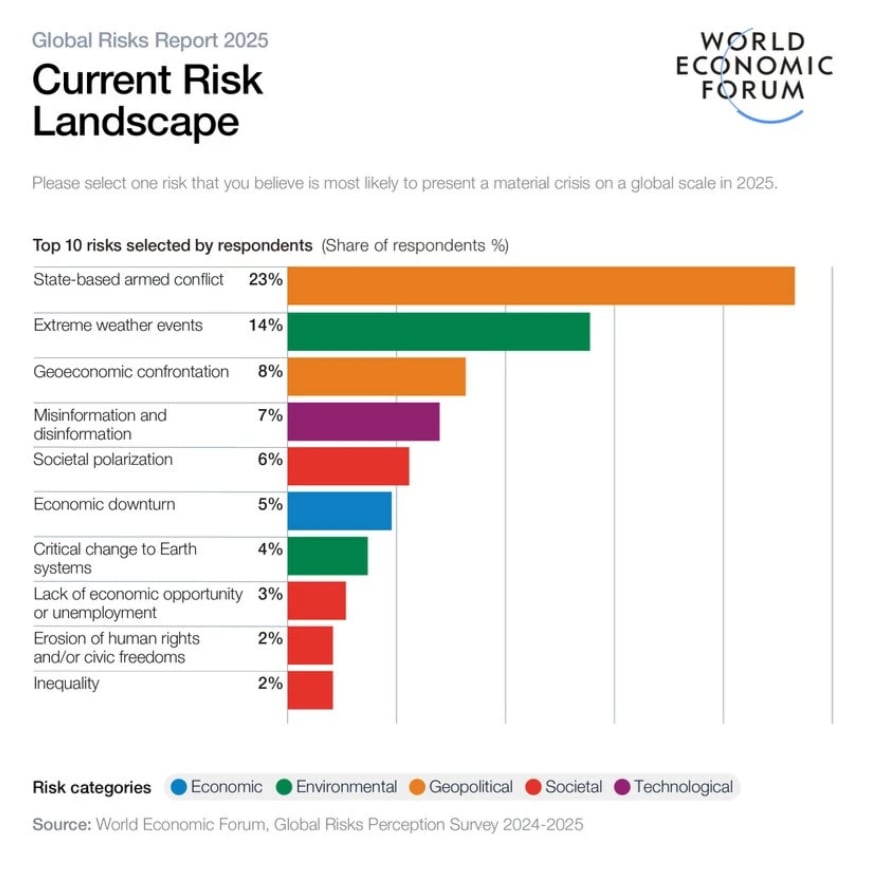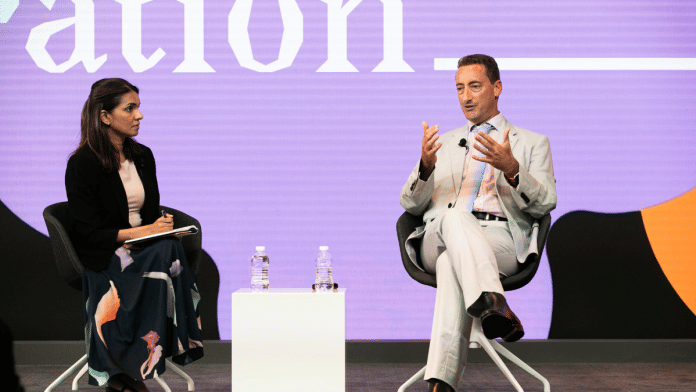“Every generation imagines itself to be more intelligent than the one that went before it, and wiser than the one that comes after it.”
This quote, attributed to George Orwell, epitomizes the perceived divide between different generations.
Or as Kamala Harris put it, “You think you just fell out of a coconut tree?”
But what is the reality?
In a session at the Annual Meeting of New Champions, Michael Bruter, Professor of Political Science; Director, Electoral Psychology Observatory, London School of Economics and Political Science explored how wide the gap really is and what might be done to bridge it.
Here are some of the key takeaways from his session.
Ask the right questions
“We focus too much on the substance – and not enough on the mechanisms of the generational gaps,” Bruter explained. “As a result, many of the solutions we’ve been trying to resolve that gap have been failing because they were simply an answer to the wrong question.”
Bruter gave the example of environmental concerns, where most would expect younger generations to be more concerned than older people.
“If you put things in terms of tensions, asking people what they’re willing to sacrifice to save the planet and to fight climate change, then the reality is that young people are actually not more willing to make sacrifices to save the environment than older [people],” he explained.
“We are framing the questions in the wrong way because we’re using the traditional understanding of what society and politics are about, according to us as older generations, which doesn’t resonate with the young.”
He said that while historically we may have considered that politics, democracy and societies are about policies, ideologies and decisions, younger generations have a different perspective.
“What they care about is about having a voice in society, feeling that elites listen to them once in a while,” Bruter continued.
“If we only focus on policies, if we only focus on the substance, we are asking questions in a way which doesn’t resonate and doesn’t answer the concern of young people in the first place. And as a result, we misunderstand young people.”
Don’t underestimate frustration and hopelessness
Bruter called out two of the biggest barriers to building cross-generational bridges; frustration and hopelessness.
“Frustration comes when there is a mismatch between what you want, what you hope from a system and what you get,” he explained. “Young people tend to be a lot more idealistic about society and democracy than [older people] are… and therefore they are not willing to accept the lesser evil when they think that none of the options they are given are optimal to them.”
Hopelessness, on the other hand, happens when people feel that things are so bad that they can’t get worse anyway.
“The interesting thing about hopelessness is that it is truly cross-generational. In particular, [for] older generations… people feel that their children and grandchildren will not live a better life than they did themselves.”
Though rooted in positive intentions (wanting to see better societal systems, or protect new generations from a lower quality of life), hopelessness and frustration can make it very difficult for different generations to understand each other’s views.

Societal polarization was the fifth most selected current risk in the World Economic Forum’s Global Risk Report 2025.Image: World Economic Forum
Understand the difference between perceptions and reality
Research shows that while different generations generally perceive each other positively, they feel that they are disliked by the other. Bruter said this “mirror perception” is a key complicating factor in the relationship between different generations.
“Mirror perception is really what is fueling intergenerational tensions within our societies both across the global North and the global South. It is articulated around four big dimensions: perceptions of prejudice, indifference, aggression, and humiliation,” Bruter explained.
“We have a situation where no generation really holds negative prejudice towards each other in real life.”
Unfortunately, these problems of perceptions are actually more challenging than real prejudices (negative thoughts about other groups which people are able to consciously challenge). Instead he says, “every generation feels that they’re merely defending themselves against a sort of ghost aggressor which is made of other generations”.
Reflection and accommodation are key
Fortunately, there are ways to help individuals overcome mirror perceptions. The Electoral Psychology Observatory has used a mix of physiological and visual experiments, surveys, panel studies, interviews and family focus groups, and finds that when talking with older generations, encouraging reflection is key.
Older participants have been asked to remember early experiences of alienation or feeling misunderstood, consider how their views have changed over time, and to approach conversations with young people with empathy.
“It’s OK to disagree,” said Bruter. “The reality of life is that we all have different ideas, different perceptions, and that our systems are there to actually manage them and help us to come up with better collective decisions.
“What is not OK, however, is to give people a sense that they are being ignored or that we tell them, ‘Well, the system works for me’.
“If we want intergenerational tensions to recede what we really need to do is to be able to find ways to accommodate the hopes, the desires, the worries of different generations within the same collective system by actually accepting that the system will need to reform, [and allow for] far more different and diverse functions than they were equipped to do in the first place.”
The most important thing different generations can do is focus on the similarities, rather than differences.
“What we need to realise if we want things to work better, is that most people are actually like us,” Bruter said. “We’re not the only ones to care about others. We’re not the only people to be selfless and to try and find solutions. Most people actually want things to work. Most people want to be their best selves, and if we listen to that, then we will be able to bridge the generational or intergenerational gap.”
This article is republished from The World Economic Forum under a Creative Commons license. Read the original article.






